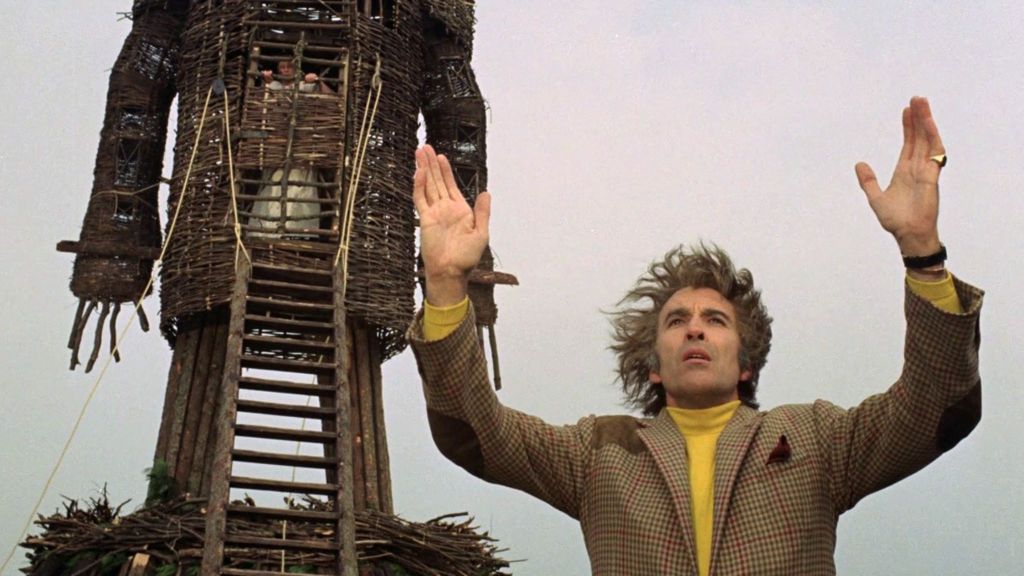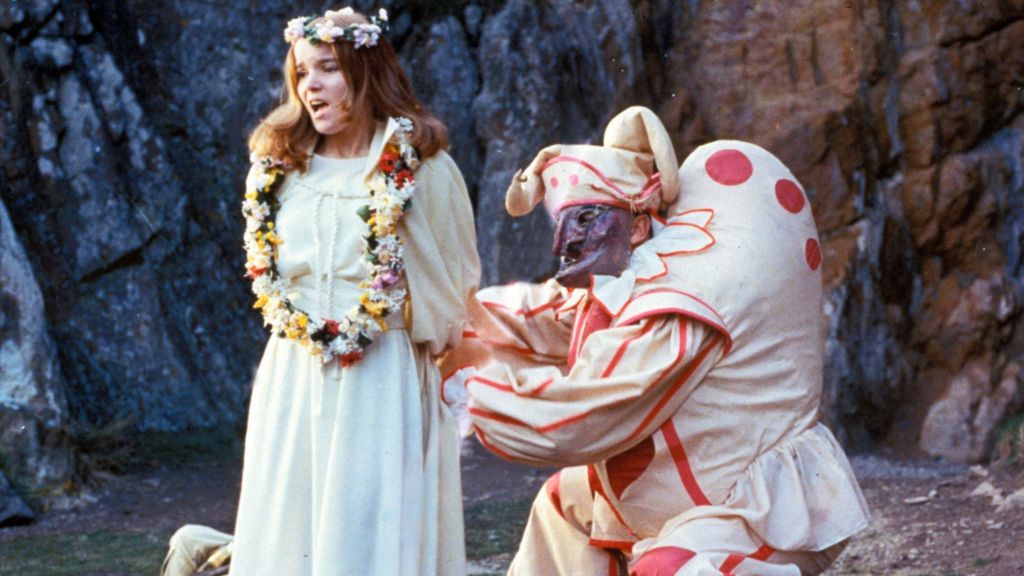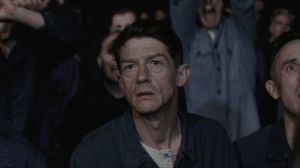Folk horror is a subgenre that draws its terror from the clash between modern society and ancient traditions. Its stories are rooted in the soil of isolated communities, where old-world beliefs and pagan rituals hold sway over the lives of the inhabitants. The central conflict typically involves an outsider, representing rational thought, who stumbles into a closed-off world and confronts a belief system that is both alien and unyielding. Through this premise, the subgenre explores the idea that civilization is a thin veneer, easily peeled back to reveal the brutal (and often ancient) customs that lurk beneath. While many films have explored these themes, one stands as the genre’s undisputed masterpiece. Robin Hardy’s The Wicker Man is the pinnacle of folk horror, and for those who wish to experience this foundational work, it is currently available to stream completely free on Pluto TV.
Videos by ComicBook.com
The Wicker Man‘s journey to becoming a celebrated classic was a difficult one. Upon its initial release in 1973, the film was a commercial failure, largely due to studio interference. Its distributors severely cut the runtime against the director’s wishes and unceremoniously dumped it in theaters as the B-picture on a double bill. For years, it remained a half-forgotten film, appreciated mostly by dedicated cinephiles.
Over the subsequent decades, however, restored and extended cuts of The Wicker Man were painstakingly pieced together, allowing new audiences and critics to finally see the film as it was intended. This led to a major critical re-evaluation that cemented its reputation as one of the most intelligent and disturbing horror films ever made. The plot follows the devoutly Christian Police Sergeant Neil Howie (Edward Woodward), who travels to the remote island of Summerisle to investigate a missing girl. He is met by a cheerful pagan community led by the charismatic Lord Summerisle (Christopher Lee), whose polite obstructions and strange rituals slowly reveal a horrifying conspiracy.
What Makes The Wicker Man So Good?

The genius of The Wicker Man lies in its complete rejection of conventional horror mechanics. Its power comes from a relentless, creeping sense of dread, not from jump scares or graphic violence. For starters, director Hardy makes the brilliant decision to set the entire story in bright, cheerful daylight, depicting Summerisle as a pastoral paradise filled with singing villagers and lush orchards. This idyllic setting creates a profound unease, as the cheerful folk songs and communal celebrations become increasingly sinister as Howie’s investigation progresses. As a result, the horror of The Wicker Man is not something that hides in the dark but is performed openly by smiling faces, making the viewer feel like a paranoid outsider right alongside the protagonist. This approach influenced some of the best modern horror movies, like Ari Aster’s Midsommar.
This suffocating atmosphere is intensified by the film’s masterful slow-burn pace. The mystery of the missing girl is the engine of the plot, but the true tension comes from the gradual realization that Howie is a pawn in a game he cannot comprehend. Every evasive answer, strange lesson taught to the island’s children about phallic maypoles, and unsettling public ritual methodically strips away his authority and control. Slowly, the island transforms from a quirky community into a psychological prison from which there is no escape, and Sergeant Howie only realizes his dire situation when it’s already too late.
The Wicker Man‘s Unyielding Clash of Ideology

At its core, The Wicker Man is a film about the collision of two unshakable belief systems. On one side, Sergeant Howie is an embodiment of a rigid Christian moral order. He is genuinely appalled by the islanders’ open sexuality and pagan practices, viewing them as a corruption that must be confronted. Because of that, his investigation becomes a personal moral crusade, and this unbending righteousness is his fatal flaw. It blinds him to the true nature of his purpose on the island and makes him an easy target for a community that understands him far better than he understands them.
The islanders, on the other hand, and particularly their leader Lord Summerisle, are not presented as one-dimensional fanatics. Lord Summerisle is intelligent, articulate, and utterly rational in his convictions. In a pivotal scene, he explains to Howie that their return to the “old gods” was a pragmatic response to a history of failed harvests that threatened their very existence. Their beliefs are a tool for survival, and this is what makes the film’s horror so potent. The islanders are not evil in their own eyes, just like Sergeant Howie is blind to the prejudice and disdain he presents, born from his Christian values. The film’s terrifying climax is the brutal result of this ideological conflict, a raw and unforgettable depiction of what happens when faith, in any form, becomes absolute. That’s what makes The Wicker Man so relevant, over five decades later, as its themes speak about a universal human experience.
What do you think of The Wicker Man? Share your thoughts in the comments.









